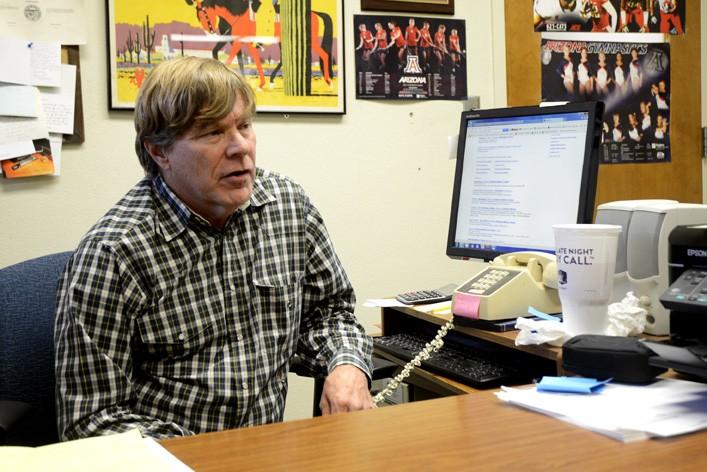The Arizona Board of Regents approved a $4.2 million recommendation to create a professional veterinary degree program at the UA at last week’s meeting.
The recommendation will be sent to Gov. Jan Brewer and, if it is included in her budget recommendations, it’ll make its way to the Legislature to be voted on.
Shane Burgess, dean of the College of Agriculture and Life Sciences, put together the multiple-year plan to offer a Doctor of Veterinary Medicine degree program.
Burgess worked with the Arizona Board of Regents to determine how much starting the program would cost.
The $4.2 million will fund start-up costs such as facility renovations and hiring faculty, Burgess said. In order to keep costs low, the college will renovate and take advantage of existing facilities rather than building new clinics for the program, Burgess added.
The plan complements other degrees that the school offers, according to Rick Myers, chair of the board of regents, and fits into the needs for veterinary doctors that animal growers have in the state. The UA’s program will also provide more collaboration and on-the-job training, Myers added.
“It’s a new, innovative way to give people the training they need and the experience they need at the same time,” Myers said, “so that they’re prepared to have a healthy practice.”
Currently, none of the three state universities offer a professional veterinary program. Students who wish to get a DVM degree can go through the Western Interstate Commission for Higher Education, an organization that reduces out-of-state costs for students. WICHE sends almost 50 students a year to other schools in its 16 member states and territories to obtain the professional degree. The state pays the difference in out-of-state fees for those who qualify for the program.
Having a veterinary program at the UA would allow tuition to stay within the state, said Dr. Noble Jackson, associate professor of the School of Animal and Comparative Biomedical Sciences.
“All of that money leaves Arizona and never comes back,” Jackson said, “so the Legislature is already paying a fairly substantial amount every year to educate veterinary students, but they’re done elsewhere.”
Along with keeping tuition money in Arizona, Jackson said a program within the state would help agriculture in areas where there is a shortage of veterinarians. Training in Arizona would be more tailored to Arizona’s veterinary needs, Jackson added.
Burgess said having a training program in Arizona would also allow twice as many students to be trained in the state.
“Many rural areas just can’t get the veterinarians they require,” Burgess said. “By having these veterinarians train in the state, they’re more likely to stay in the state.”
Students often choose to specialize in areas they’re exposed to, Burgess added.
The goal is to turn what is currently a plan into a successful program, Burgess said.
“It’s a plan that’s been approved by the regents,” Burgess said. “It’s a plan that’s waiting for legislative support through funding. And once we get that legislative support we can take that plan and we can make it a reality.”
– Follow Stephanie Casanova @_scasanova_









